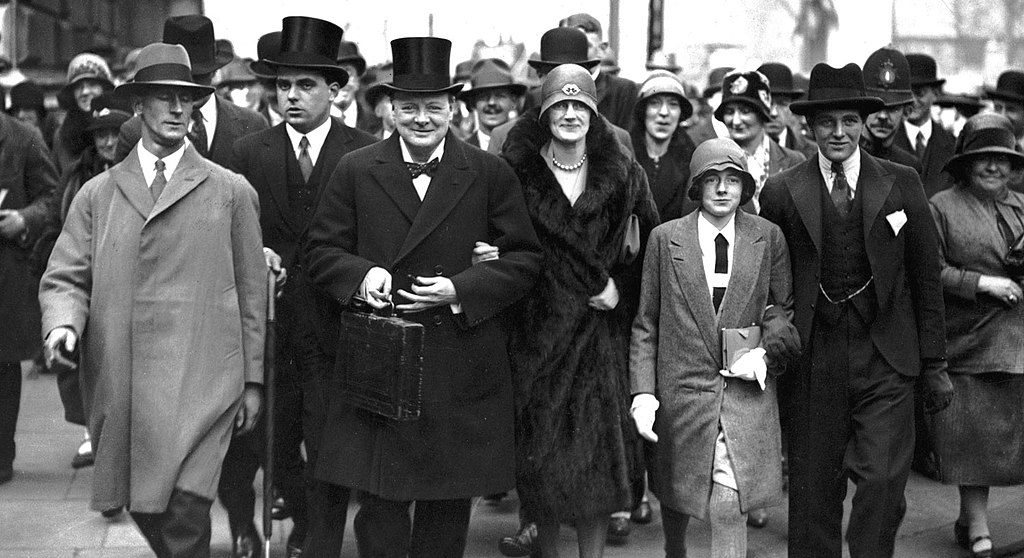
Churchill on the Annual Crisis of the National Debt
(Updated from 2011.) The United States has just blown through the $30 trillion mark in its National Debt. This is, ipso facto, the brokest country in history. Nobody has ever paid off $30 trillion; no one can even imagine how much that is.
Perennially we have the pathetic, face-saving exercise of raising the “debt limit.” The party in power is for it. The party out of power deplores profligate spending. The sides change and the same dudgeon oozes from opposite sides. “Thus we go on in strange paradox,” Churchill said in another context. “…decided only to be undecided, resolved to be irresolute, adamant for drift, solid for fluidity, all-powerful to be impotent.”
He had a few things to say about National Debt, which may be worth a laugh or a cry.
When the National Debt was £30 million
In 1710 a Tory Ministry had granted a charter to a company trading with the South Seas. In 1720 a group of Directors approached the Government with a plan to absorb the whole National Debt, then standing at about £30 million. The scheme soon came to stink of dishonesty, but the politicians were too greedy to reject it…. Walpole came to the rescue with a scheme for grafting a large section of the South Sea capital on to the Bank of England’s stock and for reconstructing the National Debt….
The last sections of the National Debt taken over by the South Sea Company were portioned out between the Bank of England and the Treasury…. A sum of money was set aside from the revenue each year to pay off the National Debt was put into operation. Within a few months the situation improved and England settled down again under another edition of Whig rule. —WSC, The Age of Revolution (New York: Dodd Mead, 1957), 109-10, 112, 115
Three centuries later
By the 1920s the UK National Debt had risen to the shocking figure of nearly £8 billion ($20 billion). As Chancellor of the Exchequer in 1924-29, Churchill suffered for it. Accordingly he proposed measures to pay it off. (This was when £8 billion was “gigantic”….)
There are two ways in which a gigantic debt may be spread over new decades and future generations. There is the right and healthy way; and there is the wrong and morbid way. The wrong way is to fail to make the utmost provision for amortisation which prudence allows, to aggravate the burden of the debts by fresh borrowings, to live from hand to mouth and from year to year, and to exclaim with Louis XV: “After me, the deluge!” —WSC House of Commons, 11 April 1927
Two decades after that
The Second World War ended with Britain losing a quarter of her national wealth, approximately £7 billion. Anthony Seldon wrote of an economy “up-ended to produce the maximum war effort. Two-thirds of her export trade was lost, over a quarter of her merchant shipping. [By 1946] nine million able workers were still actively involved in war-related activities.” Bomb and rocket damage was estimated at £1.5 billion. The National Debt trebled while the standard of living fell. “The cost of Britain’s war effort for four years exceeded her national income by 50%.”
In the teeth of this the new Labour government determined to spend unprecedented amounts on new programs of socialization. Churchill was now Leader of the Opposition, and oppose he did:
I do not believe in looking about for some panacea or cure-all on which we should stake our credit and fortunes, trying to sell it like a patent medicine to all and sundry. It is easy to win applause by talking in an airy way about great new departures in policy, especially if all detailed proposals are avoided. —Commons, 5 October 1946
Here is a field of complications of the most extraordinary variety. Why the Government should choose this particular moment to throw all this new sphere into confusion and disturbance and make a large addition to the National Debt in order to thrust the clumsy butter-fingers of the State into all this intricate apparatus cannot be imagined, still less explained. —Commons, 12 November 1946
“Clumsy butter-fingers…”
…was not a new line. His capacious memory for a melodious (malodorous?) phrase never left him. Churchill had first deployed that one in Lancashire 45 years before:
I am myself one of those who hates Government interference in trade matters. (Hear, hear.) It is nearly always a crime, and invariably a blunder. There is no great advantage to be gained by thrusting the clumsy butter-fingers of Government officials and party politicians into the delicate and sensitive operations of capital and commerce. (Cheers.) —Oldham, 21 October 1903
Nothing new under the sun
Now, Sir Winston has not interrupted his first million years painting to comment on the recently “resolved” National Debt. And after all, by today’s standards, a couple trillion here or there is pocket change. But it is interesting that National Debts large and small were subject to political shenanigans centuries before even his time.
Nor will I suggest what Churchill would think of the amounts of debt in today’s debates—heaven forbid. The quotations are are his own. Draw your own conclusions.







One thought on “Churchill on the Annual Crisis of the National Debt”
A great article with much “food for thought” – – thanks for all that you do.
I am currently reading Josh Ireland’s CHURCHILL & SON. Have you read it?
–
Yes! https://richardlangworth.com/josh-ireland
Comments are closed.